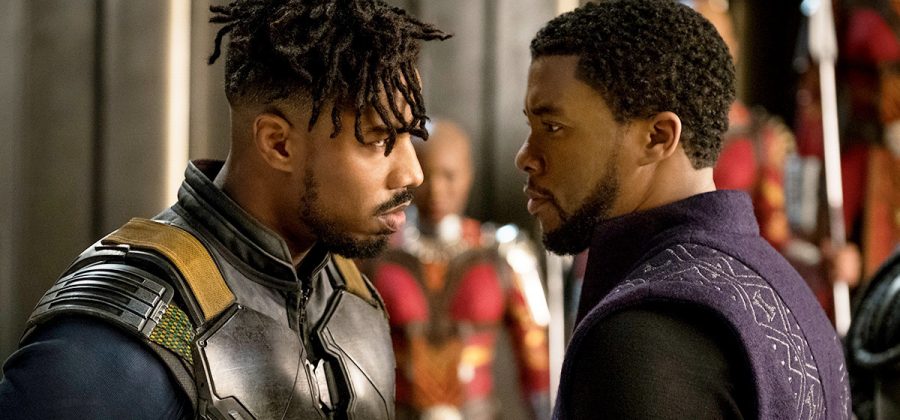Black Panther presents pioneering superhero
Superman. Spider-Man. Captain America. Batman. Iron Man.
Since Marvel’s conception in 1939, the stars of their wildly iconic and successful superhero collection have been almost exclusively cut from the same demographic: uber-intelligent white males with otherworldly powers.
With the recent release of Black Panther, however, it is clear that black culture is making its presence felt in superhero lore, not only with a hero, but also with a whole plot revolving around questions that have long been essential to the black experience.
Black Panther follows the story of a prince named T’Challa (played by Chadwick Boseman), who is given the title “Black Panther” after assuming the throne of Wakanda, Africa, from his father.
As Wakanda is such a technologically advanced country, T’Challa is able to harness a high-tech suit made of a precious Wakandan resource, Vibranium. He also gains enhanced powers of strength, stamina, senses, speed and reflexes.
Not only does this story open the door for racial diversity among superheroes, but it also contradicts racial stereotypes about African-Americans by demonstrating the intelligence, strength and power of such an isolated African society. While Wakanda is portrayed as a modern utopia, the film draws inspiration from African tradition for royal rituals, such as T’Challa’s ceremony and his trial for becoming king.
As with the release of Wonder Woman last year, Marvel films are beginning to appeal to a demographic other than young, impressionable white males.
This Marvel thriller’s exploration of black culture and history has not compromised its popularity, either. According to boxofficemojo.com, Black Panther has grossed almost $900 million since its release.
Black Panther also presents a commentary on the historical oppression of black people by demonstrating the conflicting interests of T’Challa and the film’s antagonist, Erik Killmonger (Michael B. Jordan). Killmonger seeks to use Wakanda’s resources to rain terror upon the world that he has seen oppress black people, while T’Challa seeks to keep Wakanda as discreet as possible to protect its people.
Fifty years ago, the public would have been outraged to see a black person play the lead role in a superhero thriller. However, the popularity of Black Panther suggests that racial stereotypes are no longer influential in the appeal of movies.
The overwhelming success of Black Panther opens the door for diversity in superhero lore, while providing a non-white demographic with a classic hero that they can look up to, just like white children in America have had for nearly a century. And, more broadly, the film is a testament to the world T’Challa protects: one that centralizes black culture, and is all the more powerful because of it.

